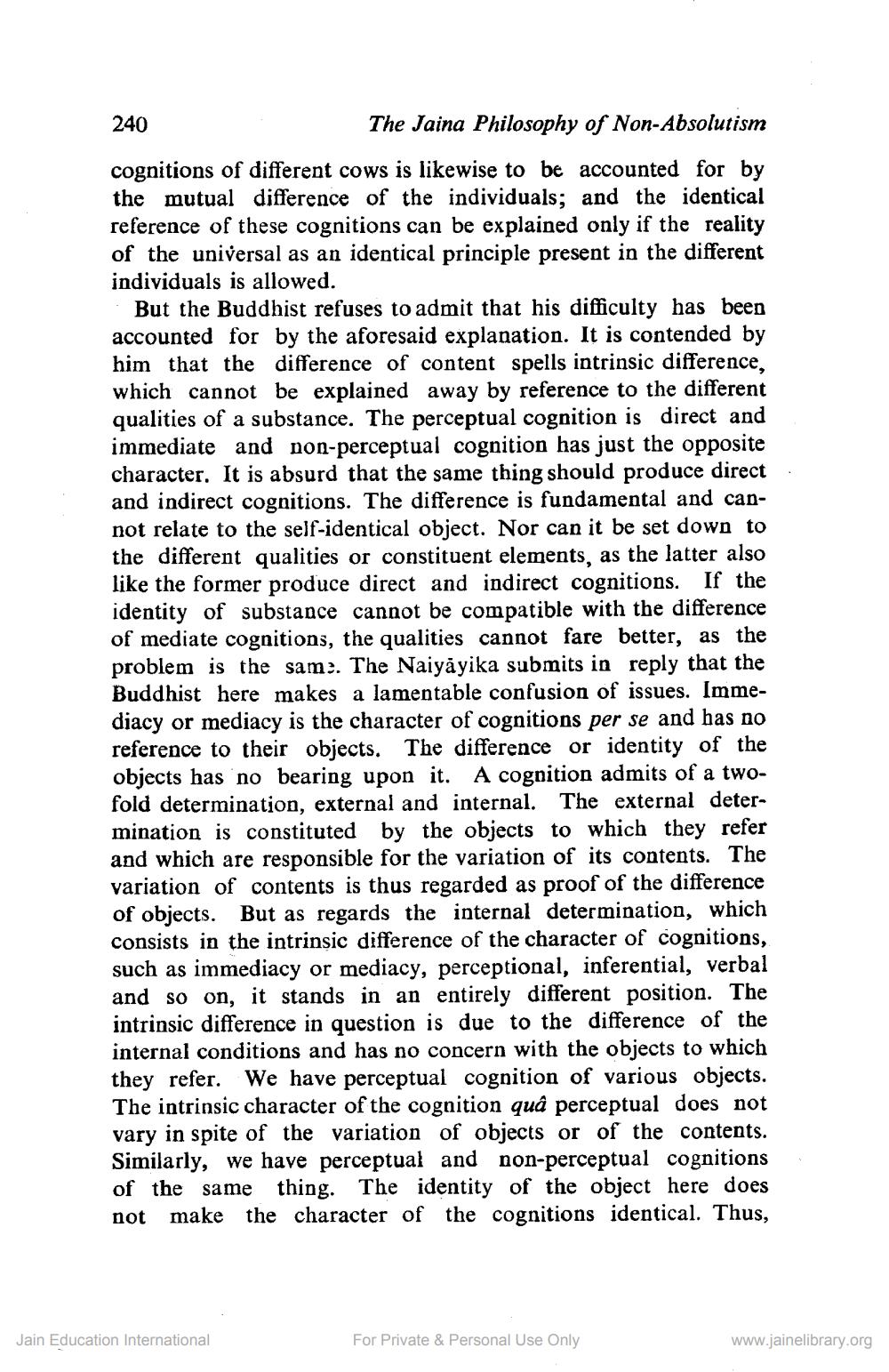________________
240
The Jaina Philosophy of Non-Absolutism cognitions of different cows is likewise to be accounted for by the mutual difference of the individuals; and the identical reference of these cognitions can be explained only if the reality of the universal as an identical principle present in the different individuals is allowed.
But the Buddhist refuses to admit that his difficulty has been accounted for by the aforesaid explanation. It is contended by him that the difference of content spells intrinsic difference, which cannot be explained away by reference to the different qualities of a substance. The perceptual cognition is direct and immediate and non-perceptual cognition has just the opposite character. It is absurd that the same thing should produce direct. and indirect cognitions. The difference is fundamental and cannot relate to the self-identical object. Nor can it be set down to the different qualities or constituent elements, as the latter also like the former produce direct and indirect cognitions. If the identity of substance cannot be compatible with the difference of mediate cognitions, the qualities cannot fare better, as the problem is the sam. The Naiyāyika submits in reply that the Buddhist here makes a lamentable confusion of issues. Immediacy or mediacy is the character of cognitions per se and has no reference to their objects. The difference or identity of the objects has no bearing upon it. A cognition admits of a twofold determination, external and internal. The external determination is constituted by the objects to which they refer and which are responsible for the variation of its contents. The variation of contents is thus regarded as proof of the difference of objects. But as regards the internal determination, which consists in the intrinsic difference of the character of cognitions, such as immediacy or mediacy, perceptional, inferential, verbal and so on, it stands in an entirely different position. The intrinsic difference in question is due to the difference of the internal conditions and has no concern with the objects to which they refer. We have perceptual cognition of various objects. The intrinsic character of the cognition quâ perceptual does not vary in spite of the variation of objects or of the contents. Similarly, we have perceptual and non-perceptual cognitions of the same thing. The identity of the object here does not make the character of the cognitions identical. Thus,
Jain Education International
For Private & Personal Use Only
www.jainelibrary.org




